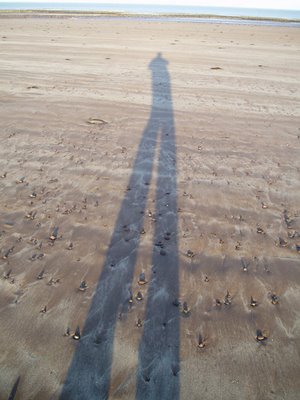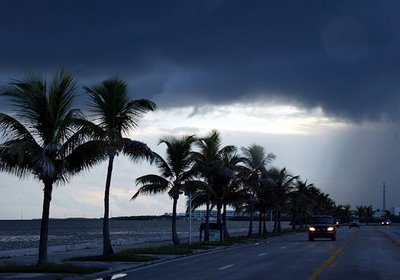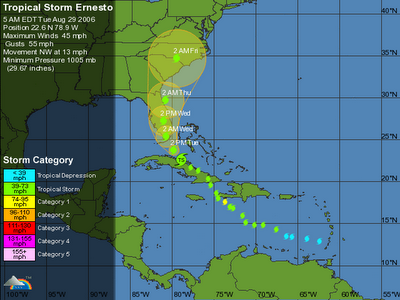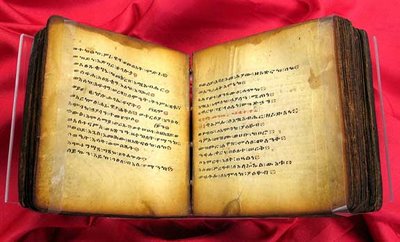My history mystery book

Follow your bliss: That’s the dictum, the mantra, the scripture pinned to the back of a diving whale. I’m ever searching for that clear blue space I emerged from as a child and have fleetingly and hauntingly re-entered at wyrd moments of a life which seems to bear the linear lineaments of a tale but is far too circular, too polytonal and deviously rhythmic for anything so literal.
Follow your bliss: I first reentered it in a girl-woman’s smile, waking after a night of first love: I had been dreaming that I was floating far at sea on a shatteringly clear summer day, free free free free free, feeling a baptismal cleanliness, my dark lonely self-imprisoned chill disptached in one still-strange woman’s simple, late-night, somewhat drunken Yes, whispered to me for reasons which to this day I do not fully understand, not in the light of which soon would cause her to forever disappear, leaving me to wander a deserted beach calling her name in every surfside bar. ...
Follow your bliss. Is bliss ecstasy, or is it the dream of it? Do we fail to find it because we grow addicted to the semblance it once wore? Is the path we call our vocation a deified version of the conch from which we first hear the sea whisper, like a chapel by the sea? Is every post, every poem another attempt to name that presence which is so achingly absent wherever we seek, like St. Oran boating in search of Manannan, only to find on each next island a note scrawled in the sand: Not Here ...
Some bliss wrote that note, and each note is a page from a book that was written long ago and tossed into the depths of our hearts.
In Bryan Sikes’ Saxons, Vikings and Celts: The Genetic Roots of Britain and Ireland, where he makes the case that local folklore has actually proved a reliable way to dowse the leys of history using DNA testing, finds that book (again, as I have noted it turning up on other shores in previous posts)
“The origin of the myth ((of Arthur)) was a quite brilliant work of creative imagination by a Welsh cleric, Geoffrey of Monmouth, writing in 1138. The History of The Kings of Britain has everything an origin myth should have. It is full of heroic deeds, terrible battles, black treachery, and is woven with just enough threads of authenticity to be taken seriously. It even had its own mysterious source -- a book (never discovered), written in the British language, which told of the lives of the ancient British kings from Brutus, the first, to Cadwallader the last, given to Geoffrey by a mysterious archdeacon, named Walter, in Oxford where he wrote the History.”
Was the book of my bliss written long ago, or do I write it anew, rediscovering it here, in this very next sentence? An interesting toil, this excavation of rapture’s tombs, this next adventure to that crashing shore where I found and she waits ...
MY HISTORY’S MYSTERY BOOK
August 31
This Book by which I came to
know my secret’s history
was handed to me by
a mistral of the sea, a sleek
selkie inside my mother’s voice
when she minstrelled over me
on that beach where I begin.
By that poured tome’s authority
do I now rant and rhyme,
writing on the shoulders
of a giant whose voice
strides shore to booming shore.
His knowledge arms and appetite
are so vast that the wildest
waters in the sayable world
merely ape the margins of
the song he teaches me,
line after line after line.
My job’s to write full down
that text in blueballed majescule
before the tide of history --
mine, his, ours, Yours --
surrounds this salty psalter
and hauls it back to doom,
returned to that brine
library where all Your
lectors leer and frown
in the peerage of drowned bones.
No one has ever read aloud
the full measure of my Book;
its last page is the final shore
I pray and fear to reach,
that bedded billow of first light
where my Beloved waits
to hear love’s first unbroken song.
The whole sea’s at her feet
from first to final wave,
and in singing to her here
at least at last one day
I’ll get to the last line of
that book; and in ending
band the marriage ring
which cycles this immrama song
through every round and
swale conceived in the
beloved womb of God.
Who first wrote a book
bound it to the flukes of
a whale and bid it shelve
down every league in hell.
Who now opens it? I do,
or He in me; I’m just
the latest author
to exhume a sacred history,
that long-lost mystery
whose ruined pages
silt our day. A sea-borne
voice -- my mother’s, His bride’s --
told me long ago about
that blue bound book,
and bid me seek
it under all the nooks
I could chase or
drink or name -- beds
in whiskey bottles,
all that swims under
those sweet curved bottoms,
beyond farewelling bournes,
upwelling from shut doors --
And that’s what
I’ve done here, page
after luckless oh so
fruitful page,
a full frontal explication
of the backyard beachside
ecstasy. And see!
The book now stretches
far back and beyond,
a tale whose flukes
are surely flailing
down the dark main
of His bride’s blue telling.
WHO WROTE THE
BOOK OF LOVE?
2004
“Here, here,” she whispered low, “here on my mouth
The swallow, Love, hath found his haunted South.”
-- Fiona Macleod, from “The Love-Kiss of Dermid and Grainne”
What a library, what a boneyard,
what a daunting reliquary of
love’s fallen saints have
assembled here upon
the back of the whale
who is also my unfreighting
for this next, still-latent,
wilding blue day! Just who
wrote the Book of Love
while I careered careening
at its hinged door, desperate
to both gain the sanctum
of as well remit its lascivious
warmth which tides
a thousand leagues below
all mouths? Ah the incessant
scribe of that dread south
with his scaly, fishlike pen,
composing polyphones of
scripture upon the
backs of brutal waves!
I recall that bad winter
a generation gone
when I poured booze
like freezing rain
upon my broken heart,
breaking it worse into
a cruel shatter of
mannish shards, glints
of ice, of hot abyss
which lured a tribe of
women to my bed
to sup the dregs
from a devilish
chalice. What words,
what wild exchanges
transpired there between
the underwateriest waves
of bad love? I don’t recall,
I was drunk and bleeding
from the thousand holes
I’d harpooned in my soul,
desperate to cauterize
the mess between whatever
woman’s breasts I could
release in the furthest
wasteland of that night,
my prone shape the
howling hollow acre
between those waves
a woman prays to wed.
That awful majescule
was writ those nights
in a madman’s bellicose
tongue, unharnessed,
unequivocal, a jabber
translating passion into
spermy schools of
of blinded fish. Love, what
an infernal pen you wielded
in my groping hand, the words
like horned cudgels
pounding shores so cliffed
no man could hope
to breach, much less sound.
The songs of angels
are distilled from such abyss,
their blue arias woven
from frantic black wings.
The Book of Love is
a weighty one, and sure
to drown that ship
which tries to freight
more than a page, two fins,
three words further south
than her softest mouth
that smiled but never
said a thing, much less
my name, while leaving
me for good. Not every
chapter since has been
so dark or riven -- most
actually have been good,
even merry -- but the
weight and depth of
the manuscript was
born in the hairy wood
of my most errant nights,
the sweetness of
whatever cream I cull
poured directly from
that older scream
that lingered in the
still, Siberian night
at the bottom of all seas
where I roamed and
cried your name
inside so many women’s
bodies, my voice
a Borealis -- the
greeny choler of the
hurtful scholar writing
far below the page I
dare to write,
rider of the rogue wave
which comes from nowhere
and knows only the
sound of smashing shores,
the recede at last to you.
MY BOOK OF WILD BLUE WONDERS
2005
My little book of wild blue wonders
is writing itself down long after
the voyage in which I found You
and endless foundered through,
My Cape of noctilucent seas.
Back then I was too in thrall
with Your fever and fret
to do much else than tie myself
to the mast and let the waves
mass through, each an
apocalypse of futile desire,
its force and drench and angel
of such brute amplitude as to
send me reeling down the
hundred leagues of doom.
Again and again I sailed out
to prow those curving walls,
surmounting crests of vicious
foam to crash on down
glassy backs and hurtle
into troughs of pure abyss,
the face staring back at me in
those deeps my own and Death’s
a caricature of bone write blue
by puerile awfulness. After
years of such sturm und drang
I travailled on to calmer seas,
but the smash and howl
of those rough nights formed
a strata in my years, a bass
clef if you will, which tide
on darkly in words I came to write
on mornings such as this,
the outer life becalmed and fine,
the inner one a drowned Cape
where all that big night music
went down down down to
silt the nougat of my heart
I tried to find so wantonly
inside a woman’s Yes.
Here at this quieter hour
of a deadened, sleepy world,
the waterworks are still
hammering the weird wattage
of that thrall, confined to
a chicken scratch across
and down the page. Each
song’s a thundrous fall of
nights long dead to me,
rehearsing in brute cerebration
the awe those wild winging seas.
BLUE BOOK
2005
Each day I write a poem to
press in Your blue book,
my salt scrivener, so that
angel brogue of wildest seas
may once again be
heard inside pale days.
That’s all. In my dream I
found glass cabinet in a lost
corridor of a pressroom,
the metal frame long oxidized
by salt & the glass almost
blurred from all the years of
ink hurled from this pen.
Inside I saw upon a shelf
three shapes of glass, chalices
or hurricane lamps or glass
reliquaries like miniature
cathedrals. All of it is
worth saving here, each
a host, a wave, a belfry.
Yesterday started with every
engine of spring at full pour
with warm sun and breezes
suggesting something more
as I planted salvia and pentas
and kalanchoe in the garden,
my hands happiest to sing
in dirt without the pen.
The front came through
quickly and by one p.m.
I was hurrying in the last
plants in full rain with
thunder cracking overhead.
My wife cursing in the back
yard, all her painting
projects spoiled. Later
that afternoon I was
in my study typing in the
day’s poem when my wife
walked up behind to mock
what I’d just said; I turned
and grabbed her as she
giggled and fought to get
away & I buried my face
in her breasts biting on
a hardened nipple which
surpised us both. Some
Godawful Christian concert
somewhere in town, a singer’s
operatic steeple yowling
“How Great Thou Art”
so loud I could barely
feed the cats on the
back porch. My wife went
to bed early, zonked
on a PM sinus pill &
me joining her not long
after to our bedroom
blue with hard moonlight,
our Siamese curled into
my wife’s behind & purring
loudly as I petted her
and my wife, listening
to the sounds of Saturday
night near and far, voices
from a neighbor’s house
talking about something
indistinct and further
out some party music
weaving in faint roars
of cars and cycles
seeped in testosterone.
All of it liquifying &
draining down into
those glass vessels I
praise here in the last
lines of this poem
which is Yours to publish
in Your book or feed it
to the fish in abysses
far below or feather that
angel’s wing that will
fly when I am done.








